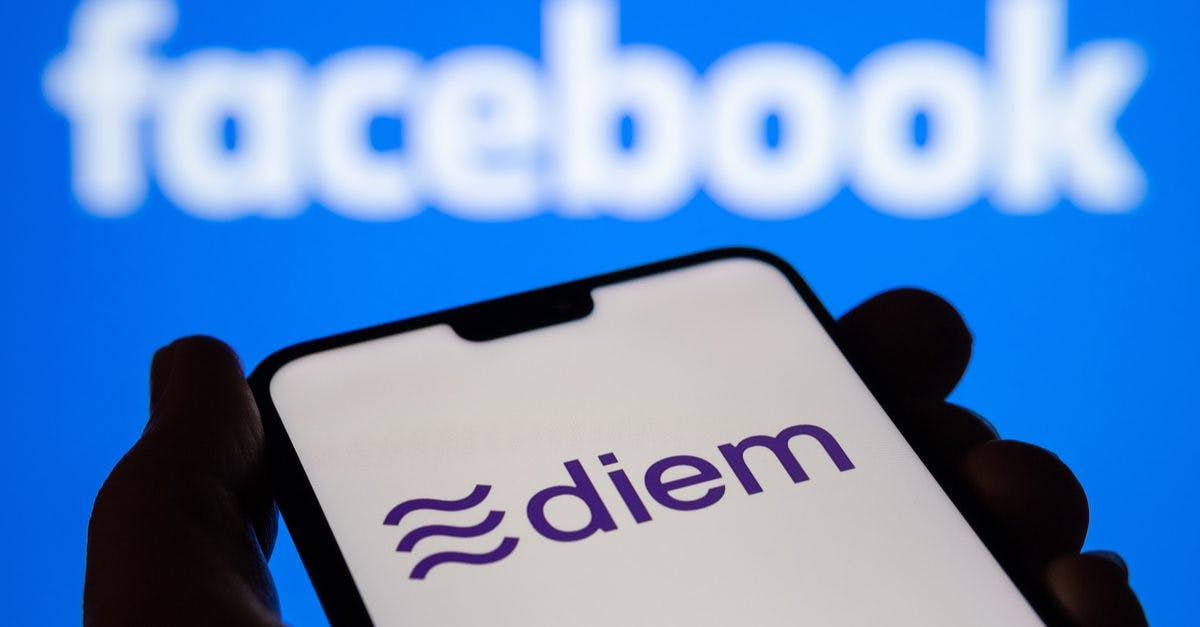Facebook-Led Digital Currency Pivots to US Dollar Stablecoin
Diem is moving its operations to Washington, DC, and the Diem Payments Network will register with the Financial Crimes Enforcement Network (FinCEN) as a money services business.

Source: Shutterstock
- The Facebook-initiated digital currency project Diem will partner with Silvergate Bank to launch a stablecoin pegged to the dollar
- The project, formerly known as Libra, rebranded to Diem in December in anticipation of a 2021 launch
The Facebook-initiated digital currency project Diem has said it will shift its operations to the US and partner with Silvergate Bank to launch a stablecoin pegged to the dollar.
The project, formerly known as Libra, rebranded to Diem in December in anticipation of a 2021 launch. It has been working to change its vision and strategy since it was first introduced in 2019, when it was met with hostility from global regulators who opposed a new corporate-issued private currency that would compete with government-issued currency.
“We are committed to a payment system that is safe for consumers and businesses, makes payments faster and cheaper, and takes advantage of blockchain technology to bring the benefits of the financial system to more people around the world,” Stuart Levey, chief executive officer of Diem, said in a statement Wednesday.
Moving operations
Diem was formerly based in Geneva, Switzerland and was seeking a license from the Swiss Financial Markets Authority. Now, it’s moving its operations to Washington, DC and the Diem Payments Network will register with the Financial Crimes Enforcement Network (FinCEN) as a money services business.
The crypto-friendly Silvergate Bank will issue the Diem stablecoin and manage the dollar reserve backing it.
Before Facebook formally announced Libra in 2019, the social media giant had already faced pushback from lawmakers over its handling of consumer data and privacy. Facebook CEO Mark Zuckerberg and head of Novi (Facebook’s digital wallet, which also underwent a rebranding, from Calibra) David Marcus had repeatedly assured critics the project would not move forward until U.S. regulators’ concerns were satisfied. As a result, the idea of Diem had morphed and its development seemed to come to a halt until recently.
Diem Association disassociation
The Diem Association, the consortium of businesses and nonprofit organizations that govern the digital currency, initially launched with 28 members. Not long after the backlash, many of its most prominent members, including PayPal, Visa and Mastercard, withdrew.
Since then, PayPal has launched a business division dedicated to crypto, Mastercard has said it will support certain digital assets for settlement on its network this year and Visa has established a pathway for digital currency settlement in the stable coin USDC.
For many companies in the business of digital assets (building wallets, applications and leveraging cryptocurrency networks in other ways) there’s a big and frequent issue whenever they try to settle payments: banks require they be settled in fiat, forcing companies to convert their digital currency to fiat and take on the fees that come with that.
Stablecoins are designed to minimize the volatility of other digital assets. They provide an intersection point between cryptocurrency networks and the fiat payment networks and allow for cross-network settlements.






